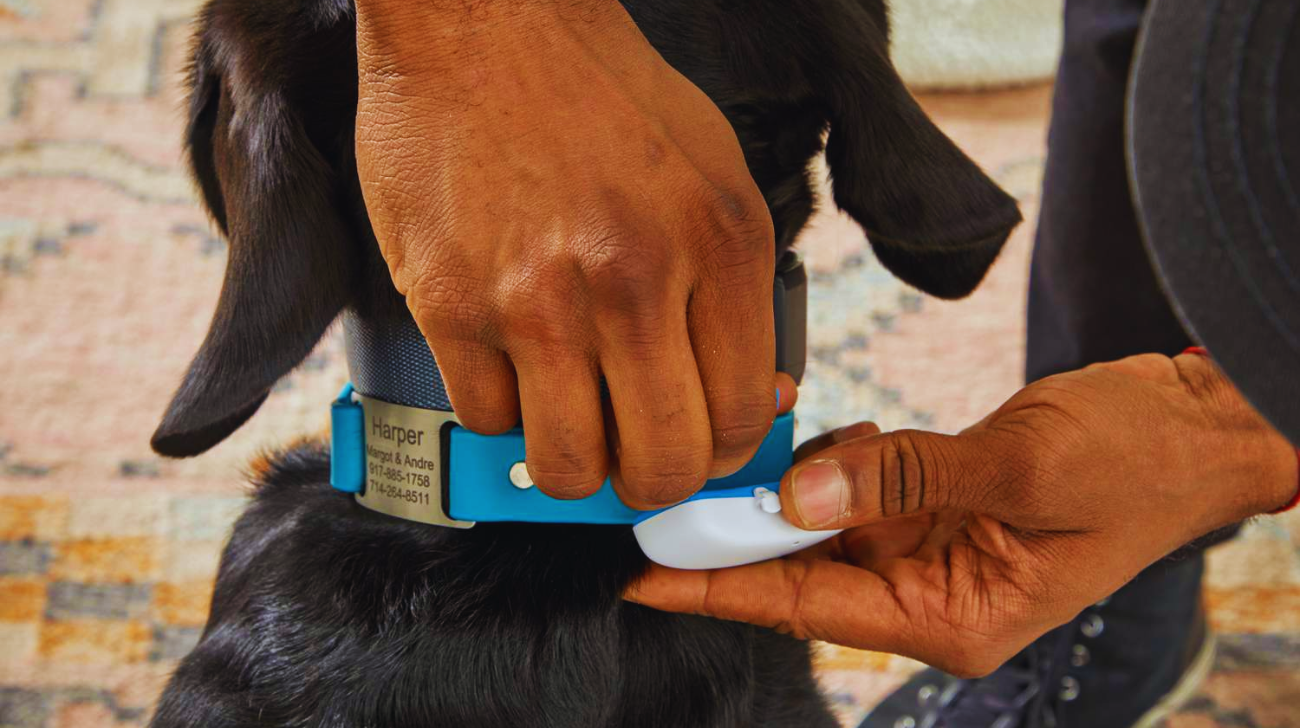Global Positioning System (GPS) technology has revolutionized the way we navigate, both in our daily lives and in professional contexts. Whether it’s finding directions, tracking fitness data, or helping emergency services, GPS is an essential tool. But what happens when WiFi is not available? Can GPS still function without a WiFi connection?
I’ll explore how GPS works, how it interacts with WiFi, and answer the common question: Will GPS work without WiFi? To discover what activities bring joy to Australian Cattle Dogs, check out this detailed guide on What Do Australian Cattle Dogs Love.
Blog Highlights
ToggleUnderstanding GPS and Its Functionality
Before we dive into how GPS works without WiFi, it’s essential to understand what GPS actually is and how it functions. The pet GPS system, as we commonly use it, is a satellite-based navigation system that works through a network of satellites orbiting the Earth.

GPS receivers (such as those found in smartphones, cars, and fitness trackers) communicate with at least three or four satellites at any given time to determine the receiver’s precise location. Get insights into what is best for Dachshunds: a collar or harness for their safety, comfort, and health during walks.
How GPS Works
The basic principle behind GPS is triangulation. The GPS receiver calculates the distance between itself and the satellites by measuring the time it takes for signals to travel from the satellites to the receiver. Given that the speed of light is constant, the receiver can use this time delay to determine how far it is from each satellite, and with data from multiple satellites, the system can pinpoint its exact location.
- Satellites: At least 24 operational satellites are orbiting the Earth, broadcasting signals to GPS devices.
- Receiver: The GPS receiver (on your phone, for example) listens to the signals from the satellites to determine location.
- Triangulation: By calculating the distance from at least four satellites, the system can calculate latitude, longitude, and altitude.
What Does WiFi Have to Do With GPS?
While pet GPS works independently of WiFi, it is essential to distinguish between the two. GPS is a satellite-based system, whereas WiFi connects devices to the internet or local networks through radio waves.

Though the two are separate systems, they can sometimes work together to improve location accuracy. Find the best dog collars for Dachshunds that accommodate their long bodies and prevent strain on their necks.
- GPS provides location data using satellites.
- WiFi can improve location accuracy by using proximity to nearby networks (routers, hotspots) to estimate your location.
In smartphones and other smart devices, WiFi-assisted GPS is often used. This means that the GPS can use WiFi signals to enhance location accuracy when the satellite signal is weak or obstructed (like in urban canyons or indoors).
Does GPS Work Without WiFi?
The short answer is yes, GPS can work without WiFi. In fact, GPS does not require WiFi to function because it relies solely on the satellite signals. However, the effectiveness of GPS can vary depending on the situation.
How GPS Works Independently of WiFi
When WiFi is unavailable, GPS uses the signals from the satellites to determine your position. This satellite signal is independent of any internet or local network connection. In this case, GPS will still provide accurate location data as long as there is an unobstructed view of the sky to receive the satellite signals.
This is particularly true when you’re outdoors or in an area with a clear line of sight to the sky. Explore the best dog collars for French Bulldogs to keep them comfortable while ensuring durability and style.
Here’s a breakdown of how GPS works without WiFi:
- Satellite Signals: GPS satellites broadcast radio signals continuously. Your GPS device listens for these signals and calculates its position by triangulating the signals.
- No Need for WiFi: WiFi is not involved in this process, meaning your device does not need an internet connection or a local network to find your position.
- Accuracy: GPS can be accurate to within 5-10 meters, depending on various factors like the number of satellites in view and signal quality.
Factors That Influence Pet GPS Without WiFi
Though GPS can work without WiFi, several factors can affect its performance. The most significant factor is signal obstruction. Since GPS signals travel from satellites in orbit, any obstruction (like buildings, trees, or dense clouds) can interfere with the signal reception.

- Obstructions: In urban areas with tall buildings or in forests, GPS signals might be blocked or reflected, reducing accuracy.
- Atmospheric Conditions: Solar flares, ionospheric conditions, or bad weather can also interfere with GPS signals.
- Device Quality: The quality of the GPS receiver in your device affects how well it can pick up weak satellite signals.
- Number of Satellites: The more satellites your GPS device can connect to, the more accurate your location will be. If fewer satellites are in view, the GPS signal can be less accurate or take longer to calculate.
GPS with WiFi: A Boost in Accuracy
Although GPS works fine without WiFi, adding WiFi can enhance the system’s accuracy, especially in situations where GPS signals are weak or obstructed. When WiFi is available, your device can use a combination of GPS data and WiFi-based location data.

How WiFi Assists GPS
WiFi-assisted pet GPS uses nearby WiFi hotspots to help triangulate your location. This can significantly improve accuracy, especially in indoor environments or urban areas where satellite signals may be weak.
When your device is connected to WiFi, it can compare the signal strength of multiple WiFi networks to get a more precise location. This process is similar to how a cell tower can provide location information when GPS is weak. Understand if French Bulldogs can wear dog collars and how it affects their neck structure and overall health.
- WiFi Scanning: Your device scans for the available WiFi networks in your area and uses their signal strength to estimate your location.
- Location Databases: Your device can also use a database of known WiFi locations to cross-reference and improve location accuracy.
In areas where GPS signals are obstructed, WiFi can provide additional information that helps the device determine location more accurately. This is especially useful for:
- Indoor Navigation: GPS signals often struggle indoors, but WiFi signals are stronger and more reliable indoors.
- Urban Canyons: Tall buildings can obstruct GPS signals, but WiFi hotspots are usually present in dense urban environments, making them helpful for location determination.
GPS Accuracy Without WiFi vs. With WiFi
When GPS operates alone, it typically offers accuracy within 5 to 10 meters. However, WiFi-assisted GPS can improve this accuracy, particularly in areas with weak satellite signals. In some cases, WiFi can boost location accuracy to within 1 to 3 meters.
- GPS Only: Accuracy of 5–10 meters.
- GPS + WiFi: Accuracy of 1–3 meters.
Can GPS Work Without Cellular Data or Internet?
Another common question is whether GPS can work without a cellular data connection or internet access. The answer is yes: GPS can function without cellular data or an internet connection, as long as the device has a GPS receiver and can access the satellite signals.

This is true for both dedicated GPS devices (like those used in vehicles or by hikers) and smartphones that have built-in GPS receivers. Discover what size collar is best for a French Bulldog puppy to ensure both safety and comfort during their growing stages.
Here’s how GPS functions without a cellular connection or internet:
- GPS Satellite Connection: The GPS receiver on the device communicates with the satellites directly to calculate the position.
- No Internet Required: The device does not need to download maps or access an online service to calculate its location.
- Pre-loaded Maps: On smartphones, if you plan to use GPS navigation without internet, it’s best to download offline maps in advance. This way, you’ll have access to map data even without a data connection.
When Would Pet GPS Not Work Without WiFi or Data?
While pet GPS can function without WiFi or cellular data, there are situations where it might not be reliable. These situations typically involve environments where satellite signals are blocked or unreliable.

1. Indoors or Enclosed Spaces
- GPS signals rely on clear sightlines to the sky. Indoors, especially in basements, buildings, or tunnels, the GPS signal can be weak or entirely blocked.
- In these cases, WiFi, Bluetooth, or cellular-based location services (such as triangulation using cell towers) can help fill the gap.
2. In Remote Areas
- GPS works best in open spaces with few obstructions. In remote areas (e.g., deep forests or mountainous regions), GPS signals may be weak, and the absence of WiFi or cellular coverage will reduce location accuracy.
3. Satellite Signal Interference
- In some rare cases, solar flares, weather conditions, or even military interference can affect the GPS signal. However, these instances are uncommon.
Conclusion: Can Pet GPS Work Without WiFi?
Yes, pet GPS can and will work without WiFi. The GPS system relies solely on signals from satellites, and WiFi is not required for GPS functionality. However, GPS can benefit from WiFi-assisted location data, especially in urban environments, indoor spaces, or areas with weak satellite signals.
WiFi enhances the accuracy of GPS by providing additional data points to refine the location calculation. Hope so, now you know will gps work without wifi? Learn if Dachshunds need special collars to provide the right support and comfort for their unique body shape.
If you’re using GPS without WiFi or cellular data, the system will still give you an accurate position based on satellite signals, although you might not have access to online maps or real-time traffic information. If you’re in an area where GPS is weak (such as indoors or in dense urban areas), you might want to enable WiFi or cellular data for better location accuracy.





